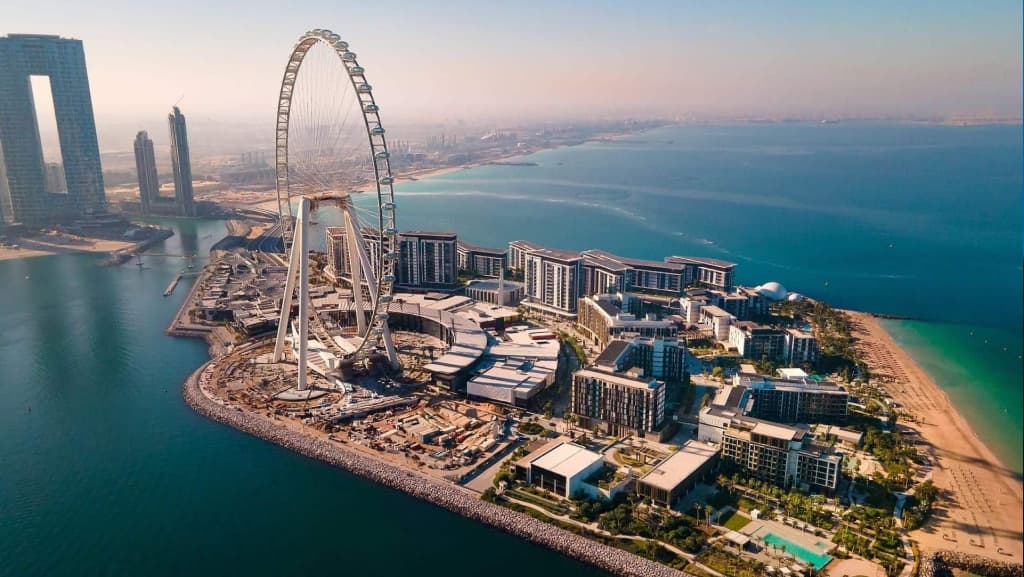
UAE Property Law: Key Rules and Processes Foreign Buyers Must Know
From freehold zones to hidden fees, experts outline the key legal rules and costs foreign investors must know before buying property.
As more UAE residents and overseas investors turn to property as a long-term investment, understanding the legal framework for expatriates compared to Emiratis has become essential.
For foreign buyers, the process is transparent and well-regulated, but knowing the nuances of ownership rights, costs, and legal obligations is critical before committing.
Can Foreigners Purchase Property Anywhere in the UAE?
In Dubai, property ownership for expatriates is permitted only in designated freehold zones. These include some of the city’s most prominent neighbourhoods such as Palm Jumeirah, Jumeirah Beach Residence (JBR), Downtown Dubai, Dubai Creek Harbour, Arabian Ranches, Dubai Hills Estate and Dubai Marina.
These zones were specifically designated to encourage foreign investment. The policy ensures expats have access to prime communities with full ownership rights, while also safeguarding areas reserved exclusively for Emiratis.
Freehold vs Leasehold Ownership
Freehold ownership grants buyers full rights to both the property and the land beneath it, with no expiry. Owners can live in, rent out, sell, or pass on the property without restriction.
Leasehold ownership, by contrast, typically ranges from 30 to 99 years. Here, the buyer owns the right to occupy and use the property but not the underlying land, which remains with the freeholder -- often the government or a master developer. At the end of the lease, ownership reverts to the freeholder unless renewed.
"Understanding the distinction between freehold and leasehold is vital,” noted Sunil Ambalavelil, Chairman of Kaden Boriss. “Foreigners should carefully evaluate whether they are looking for long-term legacy ownership or time-bound residential investment."
How Do Property Laws Differ Across the Emirates?
Each emirate has its own real estate regulations, although all are grounded in contract law. In Dubai, the primary binding document is the Form F contract, also known as the Memorandum of Understanding (MoU), between buyer and seller.
In Abu Dhabi, two jurisdictions apply:
-
Abu Dhabi Global Market (ADGM) laws govern Reem Island and Maryah Island.
-
Abu Dhabi Real Estate Centre (ADREC) laws apply to the rest of the emirate.
Abu Dhabi also recognises three types of ownership:
-
Freehold (full ownership)
-
Usufruct (99-year lease of property)
-
Musataha (49-year lease of land, renewable, with rights to build and lease the developed property)
Expats can purchase property in designated investment zones, such as Saadiyat Island, Reem Island, Maryah Island, Yas Island, Jubail, Raha Beach and Al Reef. Properties outside these areas are restricted to UAE nationals.
What Fees Must Foreign Buyers Factor in?
While there is no income tax or property tax in Dubai, buyers must budget for several transaction-related costs:
-
Dubai Land Department transfer fee: 4% of purchase price
-
Broker’s commission: Around 2% plus VAT
-
Annual service charges: For maintenance of common areas and facilities
"These additional costs can be significant, so foreign investors should prepare accordingly,” said Ambalavelil. “Too often, buyers underestimate the total outlay beyond the purchase price."
Do you Need Residency or Physical Presence to Buy Property?
Non-residents can buy property in the UAE, and the process can even be completed remotely. In Dubai, this is done by digitally completing the Unified Form F and using a power of attorney for ownership transfer.
Is UAE Property a Worthwhile Investment?
Mortgage interest rates for expatriates are competitive, and in many cases, monthly repayments can be lower than comparable rents. This has positioned UAE property as an attractive asset class for both end-users and investors.
The UAE has built strong regulatory frameworks to ensure investor confidence. Combined with high rental yields and capital appreciation potential, property here continues to be one of the most compelling real estate markets in the region.
Key Advice for New Buyers
Experts stress the importance of due diligence and working with experienced professionals. Buyers should:
-
Research communities and lifestyle offerings before selecting a property.
-
Use a reputable brokerage to guide them through mortgages, negotiations and contracts.
-
Pay close attention to the MoU or Form F, as this document governs the terms of transfer.
In Abu Dhabi especially, brokers still play a central role in conveyancing. Without legal professionals deeply involved, buyers must ensure their broker is experienced and that the MoU terms are watertight.
For any enquiries please fill out this form, or contact info@thelawreporters.com and Follow The Law Reporters on WhatsApp Channels